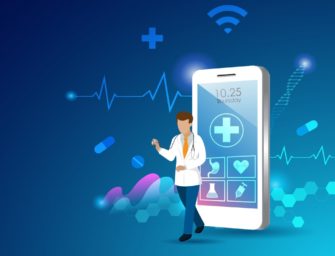The Major Technological Trends Shaping the World by 2025
As the world rapidly evolves, technological advancements are driving transformative changes across industries and everyday life. By 2025, several key trends are expected to redefine the technological landscape, fostering innovation, efficiency, and connectivity.
1. The Expansion of Artificial Intelligence (AI)
AI continues to revolutionize industries through automation, data analytics, and decision-making. By 2025, AI is expected to further integrate into healthcare, education, and customer service, providing personalized solutions and enhancing operational efficiency. Generative AI, exemplified by tools like ChatGPT, will enable the creation of new content, while advancements in machine learning will refine predictive analytics, transforming fields such as finance and retail.
2. The Rise of the Metaverse
The metaverse—a digital, interconnected virtual world—will gain traction as companies like Meta, Microsoft, and others invest heavily in its development. By 2025, virtual and augmented reality (VR/AR) technologies will make immersive experiences more accessible, enabling applications in gaming, remote work, education, and social interactions. The metaverse is poised to redefine digital commerce, with virtual real estate and digital goods becoming mainstream assets.
3. 5G and Beyond
The rollout of 5G networks is expected to be nearly complete by 2025, providing unprecedented speed, reliability, and low latency. This connectivity will facilitate advancements in IoT (Internet of Things), autonomous vehicles, and smart cities. Looking ahead, research into 6G technology will further accelerate, promising even greater connectivity and enabling applications such as holographic communications and ultra-reliable AI systems.
4. Advancements in Biotechnology
Biotechnology is on the cusp of major breakthroughs, particularly in healthcare and agriculture. By 2025, developments in CRISPR and gene-editing technologies will pave the way for personalized medicine and treatments for genetic disorders. Synthetic biology will also transform food production, with lab-grown meat and sustainable bioengineered crops becoming viable alternatives to traditional methods.
5. Quantum Computing
Quantum computing, though still in its infancy, is expected to make significant strides by 2025. This technology will tackle complex problems beyond the reach of classical computers, impacting cryptography, material science, and drug discovery. As quantum technology becomes more accessible, industries like finance and logistics will begin leveraging its capabilities for optimization and forecasting.
6. Sustainable Technology
As environmental concerns mount, green technologies will become a priority. Innovations in renewable energy, such as improved solar panels and wind turbines, will drive the transition to clean energy sources. Battery technology, particularly for electric vehicles (EVs), will improve, reducing costs and boosting adoption rates. Circular economy principles, emphasizing recycling and reusing materials, will guide product development.
7. Cybersecurity Innovations
With increased reliance on digital systems, cybersecurity will remain a critical focus. By 2025, AI-driven security measures will be commonplace, capable of identifying and mitigating threats in real-time. Blockchain technology will also find broader applications in securing digital identities and financial transactions, fostering trust in decentralized systems.
8. Robotics and Automation
Robotics and automation are set to play an expanded role in manufacturing, logistics, and healthcare. Collaborative robots (cobots) will work alongside humans, enhancing productivity while reducing workplace risks. Autonomous drones will revolutionize delivery services, disaster response, and infrastructure monitoring.
The technological trends by 2025 reflect humanity’s relentless pursuit of progress. From AI and quantum computing to sustainable innovations, these advancements promise to reshape industries and improve quality of life. However, they also raise ethical, security, and societal challenges that will require thoughtful navigation. By leveraging these technologies responsibly, the world can move towards a smarter, more connected future.
Photo : licdn.com
















There are no comments
Add yours